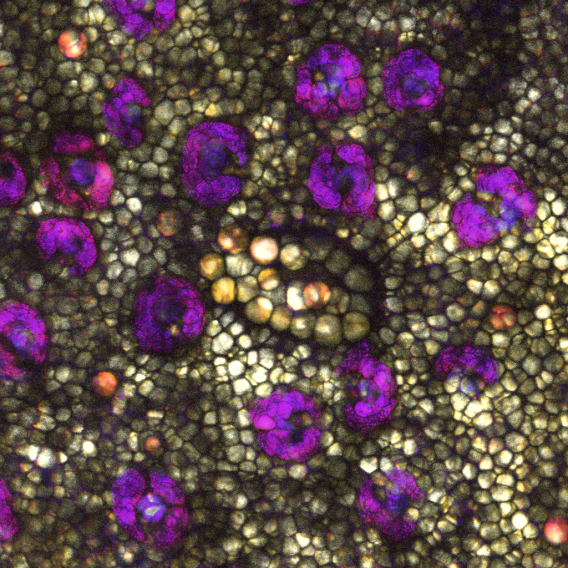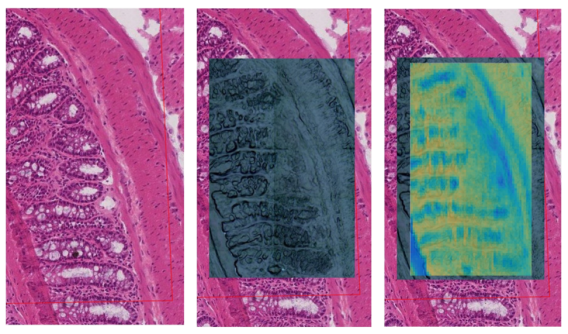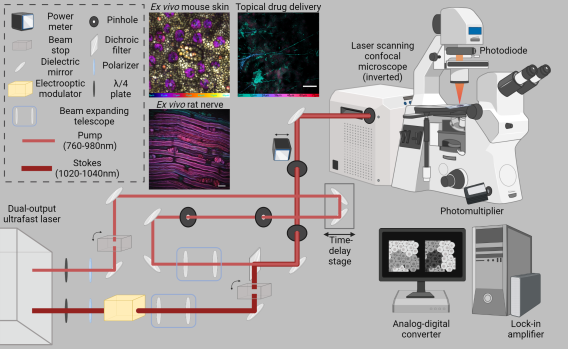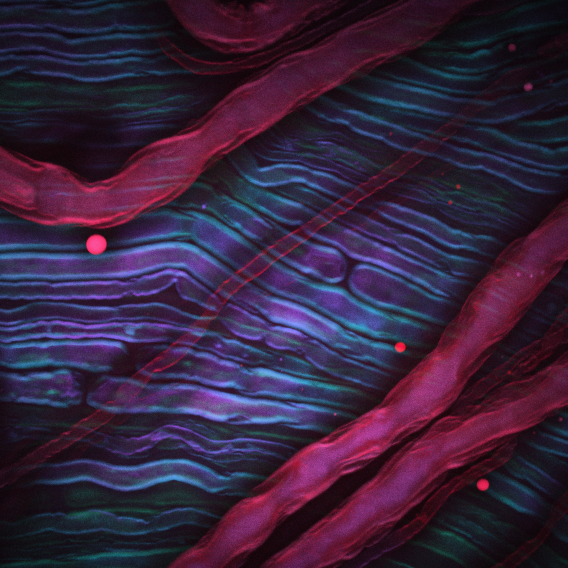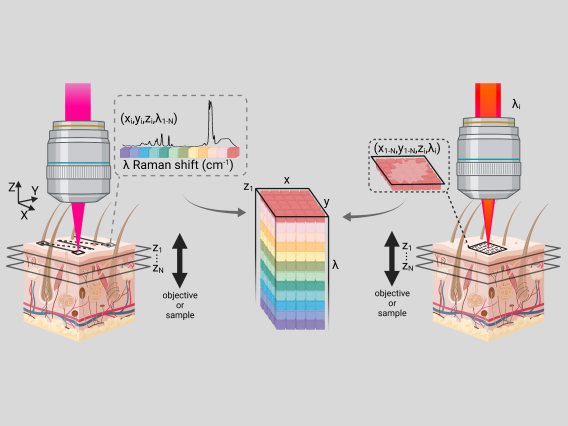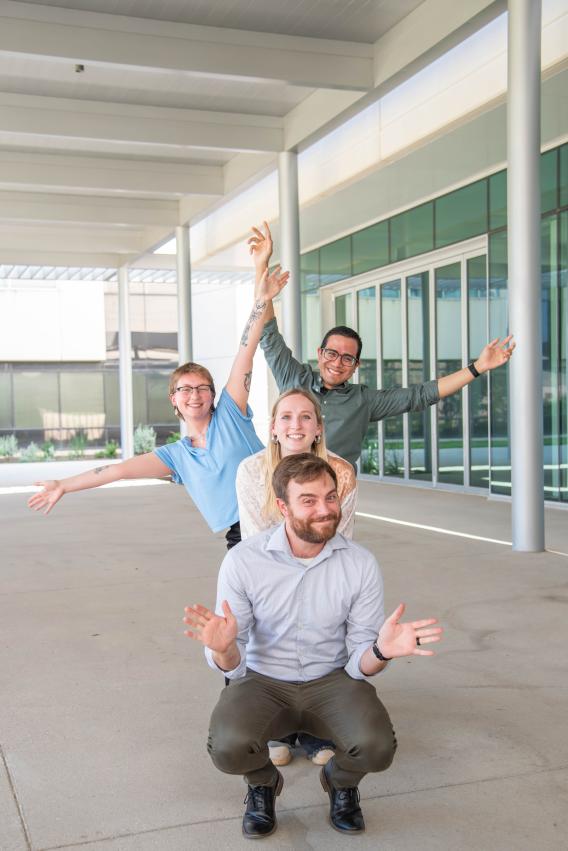Engineering light-based solutions for biomedical challenges.
We are focused on the development and translation of new tools for non-invasive characterization of physiology and disease. By working with multidisciplinary teams spanning engineering and medicine, our aim is to bring new technological solutions to the bedside, to address major challenges in medical care, and to improve patient outcomes and quality of life.
Raman scattering is an optical interaction that can be used for non-destructive physicochemical characterization of samples without the need for exogenous contrast or extensive sample preparation. We apply spontaneous and coherent Raman microscopy approaches to visualize and quantify spatial and compositional properties of biomedical samples.
Using portable system components and versatile designs for light delivery and collection, we develop devices that directly interface with patients in a clinical setting. Noninvasive tool development enables the measurement of pathological changes and treatment response to augment screening, diagnosis, monitoring, and prediction across multiple tissues and diseases.
Our lab is conducting groundbreaking research into pelvic organ prolapse (POP), a multifactorial condition that alters the composition of the extracellular matrix (ECM) and compromises the biomechanical integrity of the vagina. Currently, we are validating the use of a fiber optic Raman probe to assess the composition of the microstructure in healthy and afflicted patients with the goal of increasing treatment efficacy. Noninvasive technology that quantifies the biochemical makeup of the vaginal ECM is unprecedented and provides a unique opportunity to facilitate the understanding of POP etiology.
Data acquisition over time in 3D space with encoded spectral information provides rich, multidimensional signals for complex analysis. Spanning multivariate statistical modeling and machine learning techniques, we develop new analytical methods to extract and represent biomedical data for medical decision making.
High spatial and spectral resolution analysis, rapid measurements, and sensitive detection tools enable the characterization of disease markers. By looking at the heterogeneity of biomarkers in tissue and patient-derived samples, improved approaches can be created to quantify disease processes amid the natural variation of human physiology.

Meet the PI
Dr. Isaac Pence is an Assistant Professor of Biomedical Engineering, Internal Medicine, and The Charles and Jane Pak Center for Mineral Metabolism and Clinical Research. The Pence lab develops and applies translational biophotonics technologies to address outstanding challenges in medicine and biology with an initial focus on systemic kidney, cardiovascular, and gynecological disease.
Contact Us
Department of Biomedical Engineering
UT Southwestern Medical Center
2336 Inwood Road
Dallas, Texas 75235
The laboratory and department are located on the East Campus of UT Southwestern in the Texas Instruments Biomedical Engineering and Sciences (EA) building.
Collaborate
Looking for noninvasive and label-free tools for imaging and analysis? Interested in our imaging research? Get in touch to learn more or find out ways to collaborate.
Biomedical Engineering and Sciences Building
The BME Department at UT Southwestern is transitioning to the new 150,000 square-foot Texas Instruments Biomedical Engineering and Sciences Building, a joint venture with UT Dallas. This new facility will foster collaboration and integration with UT Dallas’ BME faculty members to improve human health and unravel the fundamental underpinnings of biological processes.

The Pence Lab @ UT Southwestern is hiring! Come join the team.
The lab is seeking highly motivated students, postdocs, and clinical fellows with an interest in Biophotonics who are excited to develop and translate new optical spectroscopic and imaging tools to the bedside to expand our understanding of disease, monitor therapy response, and predict patient outcomes.
Prospective postdocs – The Pence Lab is seeking new colleagues with diverse training experiences in:
- Translational biophotonics
- Biomedical instrumentation
- Computational analysis
Prospective graduate students – Contact Isaac Pence to discuss possible rotation projects. We are a part of the UT Southwestern Biomedical Engineering Department and BME Graduate Program.
Information for prospective BME students interested in imaging research at UT Southwestern.
